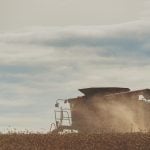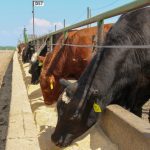The global stocks-to-use ratio for the major crops, excluding China, has been trending down since 2018, Jason Newton, Nutrien’s chief economist, told delegates attending the 24th International Farm Management Association Congress in Saskatoon.


Sluggish production blamed on adverse weather conditions and high input costs that lead to reduced fertilizer use





Long-awaited feed regulation update offers more flexibility, risk-based approach, focus on food safety



